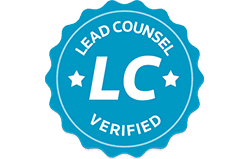Bring all relevant documents and evidence pertaining to your case, such as contracts, correspondence, or court notices. A detailed summary of your situation and a list of questions can also help you make the most of your meeting.
FAQs
FAQs
How can I ensure good communication with my attorney?
Establish clear expectations for communication, such as preferred methods (email, phone calls, etc.) and response times. Being proactive with updates and queries will also facilitate effective collaboration.
What should I do if I'm arrested for a crime?
The most important step is to remain silent and request an attorney immediately, as anything you say can be used against you in court. Consult with an experienced and highly skilled criminal defense attorney without delay, preferably before speaking with law enforcement officers or making any statements about your case.
Can I represent myself in a criminal case?
While you have the right to represent yourself, it’s strongly discouraged as criminal law is complex and the consequences of a conviction can be life-altering. An experienced criminal defense attorney understands court procedures, evidence rules and negotiation tactics that can significantly impact the outcome of your case.
How long does a criminal case typically take to resolve?
The timeline for criminal cases varies significantly based on factors such as the complexity of court schedules, charges against you and whether the case goes to trial or is resolved a plea negotiation. Simple misdemeanor cases can be resolved within a few months to a year, while complex felony cases often take a year or more to reach completion.
Can my criminal record be expunged in Indiana?
Indiana law permits the expungement of specific criminal records, offering individuals a chance to clear their history under specific circumstances and time requirements. An attorney can assess your situation to see if you’re eligible for expungement and guide you through the application process.
What is the statute of limitations for filing my injury claim?
In Indiana, the statute of limitations for filing a personal injury claim is two years from the date of the injury. It is crucial to act promptly to ensure your right to seek compensation is preserved.
How is fault for an accident determined?
Indiana follows a comparative fault system, meaning your compensation may be reduced by the percentage of your fault. However, if you are found to be more than 51% at fault, you may be unable to recover damages.
What damages can I recover in a personal injury case?
Victims can typically pursue compensation for lost wages, medical expenses, property damage and pain and suffering. Compensation helps you focus on your recovery and sustains you while you are unable to work.
What should I consider when hiring an attorney?
Evaluate their experience, reputation, and familiarity with Indiana laws. Additionally, consider their communication style and whether they take time to address your concerns and explain legal concepts clearly.
What are my rights as a client?
Clients have the right to confidentiality, clear explanations of legal strategies and diligent representation. Understanding your rights can help you develop a strong and trustworthy relationship with your attorney.
Whether you were injured in an accident or accused of a crime, we work tirelessly to help your case and are committed to protecting your future.
WHAT OUR CLIENTS SAY!
Get A Free Consultation
We can help you get through your legal crisis. Contact the Law Offices of Shane O’Donnell today.













